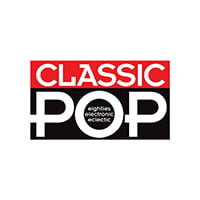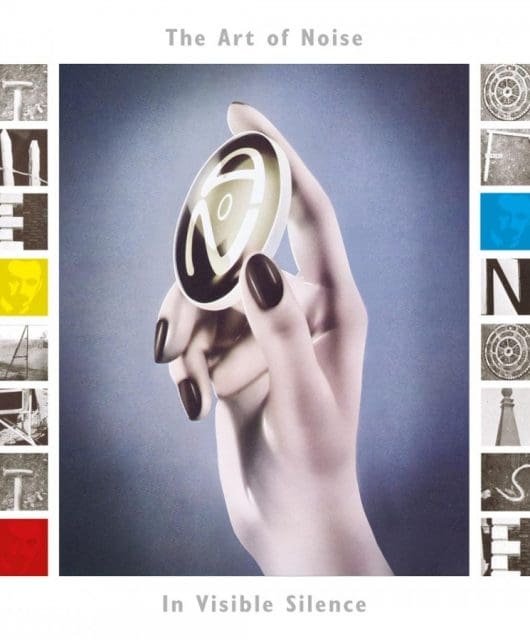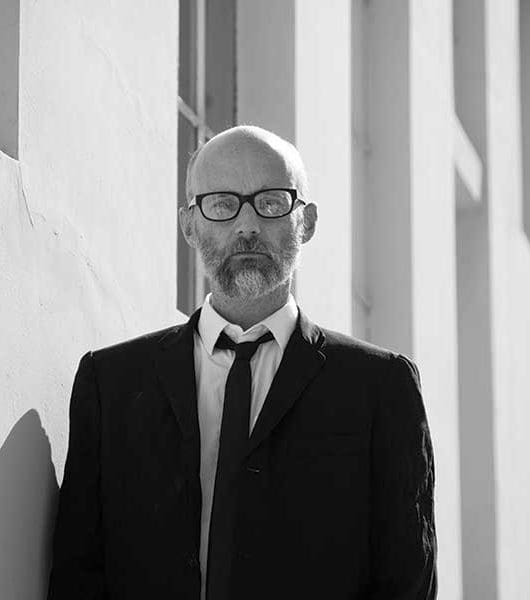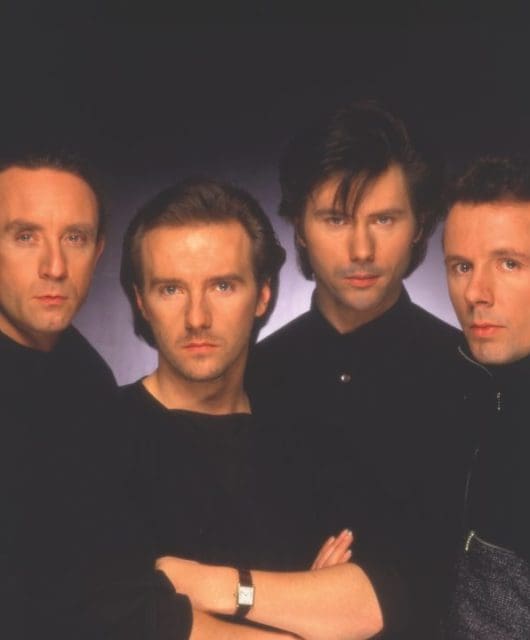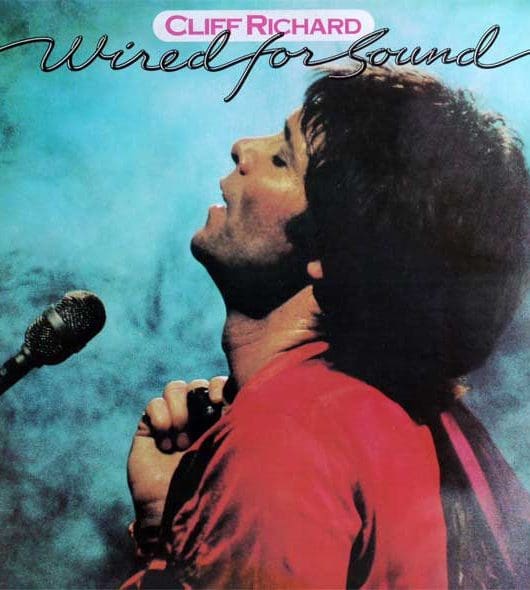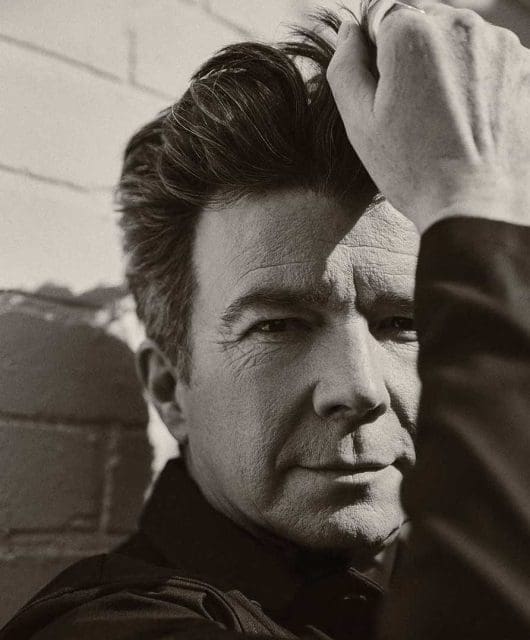Andy Bell Talks Erasure: ABBA-esque
By Classic Pop | September 21, 2021
Erasure: ABBA-esque was a 1992 EP of ABBA cover versions that helped revitalise the Swedes’ fortunes ahead of Mamma Mia! et al. Erasure’s Andy Bell talks frankly about the ABBA effect… By Paul Lester
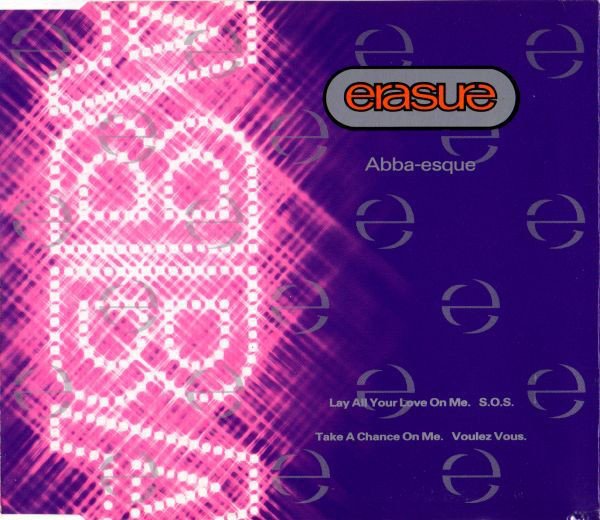
In June 1992, Erasure released the ABBA-esque EP, comprising four cover versions of Benny Andersson and Björn Ulvaeus’ ABBA classics – Lay All Your Love On Me, SOS, Take A Chance On Me and Voulez-Vous.
It became the duo’s first – and, to date, only – No. 1 for a single or EP in the UK: they had previously peaked at No. 2 twice, first with Sometimes in 1986, followed by the Crackers International Christmas EP in 1988.
ABBA-esque spent five weeks at the top of the charts in Britain and also reached pole position in Ireland, Austria, Finland and ABBA’s homeland of Sweden, where it remained for six weeks. It saw singer Andy Bell and sonic architect Vince Clarke delicately negotiating the middle ground between fidelity towards the originals and imposing a distinctly Erasure-ish aesthetic.
Lay All Your Love On Me opened with a choir of multitracked Bells, affording it an out-of-season Yuletide churchy ambience, before turning into a lightly throbbing dancefloor version of ABBA’s Top 10 entry from summer 1981 (when it was the biggest-selling 12-inch record in UK chart history, ahead of New Order’s Blue Monday).
The intro to SOS (a UK No. 6 in 1975) featured those familiar piano chords, only rendered this time on an electric keyboard.
The remainder of the song was a bubbly, burbling synthpop take on the Andersson-Ulvaeus version, as though it had been dipped in techno.
Take A Chance On Me (UK No. 1, 1978) was the most faithful of the tracks on the EP, with a sprightly feel that allowed Bell and Clarke to camp things up in the accompanying video – promos were produced for all four tracks, and issued as a video EP on VHS (a remix EP was also released by Erasure’s label Mute in the UK, which featured the same four songs in heavily reworked form).
Erasure: ABBA-esque – Lay All Your Love On Me
That said, the rap by Londoner Caron Geary aka MC Kinky, the first white female reggae/dancehall toaster, was something of a departure from the original and must surely have caused raised eyebrows chez ABBA. Finally, there was Voulez-Vous (No. 3, 1979), which gave the song a sparkly glitterball disco twist.
The ABBA-esque EP was a resounding success, both artistically and commercially – and not just for Erasure: it’s been argued that the four-song EP helped revitalise ABBA’s fortunes and give them a healthy dose of credibility ahead of the wider revival of their career provided by the 1999 Mamma Mia! musical and attendant 2008 movie of the same name.
Yes, ABBA Gold: Greatest Hits – a 19-track compilation issued in September 1992 – would already have been on the release schedules long before Erasure decided to put out their EP; nevertheless, ABBA-esque can be seen as a trailer or teaser for that hits collection and a reminder to the general public of the Swedish pop phenomenon’s melodic sensibility and general musical magic.
ABBA Gold would eventually become the second-best-selling album of all time in the UK, one place behind Queen’s 1981 Greatest Hits, with nearly 5.2 million units shifted.
It also cemented Erasure’s reputation as pop colossi themselves. As a measure of the kind of fuss the EP caused in 1992, it led to the release of the Erasure-ish EP by the ABBA tribute band Björn Again, which featured two Erasure tracks (A Little Respect and Stop!) performed in the style of ABBA, as a direct riposte to Erasure.
It was a tribute to an homage; postmodern referentiality run rampant.
Classic Pop: How did the ABBA-esque EP happen? Was there a conversation between you and Vince (Clarke) about it?
Andy Bell: I’m not sure if we spoke about it that much. We’d already done a version of Gimme! Gimme! Gimme!… years before, on the B-side of [1986 single] Oh L’Amour and I just loved the band – I was a huge fan when I was at school, back when it was uncool to admit you liked them. I thought they were really, really underrated.
CP: It was inconvenient of ABBA to emerge at the height of punk!
Bell: Yeah. It was because of my pop sensibility that I was such a fan. I loved Elvis Presley and rockabilly and Buddy Holly and country ’n’ western music, which ABBA was always tinged with in the beginning. Also, I was a bit of a Euro fan, and you didn’t get to hear too much European music at the time. It was just something Vince and I did for fun.
Erasure: ABBA-esque – SOS
CP: Wasn’t the original intention for the EP to be an album?
Bell: Yes, but in hindsight, I’m really glad it wasn’t, because we honestly did get swamped by the whole ABBA thing. It almost became a new career – Erasure almost got forgotten about as songwriters, because we got so well-known for those cover versions. It was the height of our popularity and it became too much. That was the point when I said, “Please switch it off and make it go away.”
CP: Did you have to convince Vince to do it in the first place?
Bell: No. We did have a little tussle over the song choices, which we always do, anyway. His taste is completely different to mine. He chose SOS and Take A Chance On Me and I went for the more dancey, uptempo ones.
CP: Notably, you didn’t do Dancing Queen…
Bell: No, no. A few people had done [ABBA cover versions] before us. Blancmange had done The Day Before You Came and I know Jimmy Somerville did a version of Dancing Queen live with The Communards… Anyway, we were on tour and not in the country and the EP just took off. We were quite surprised, because ABBA had fallen out of favour a bit and been forgotten about. They needed that boost from another familiar band.
CP: Did you study the songs?
Bell: I’m not really a music reader, but I am a really intense listener. I did the same with Siouxsie And The Banshees and Blondie and The B-52’s – you just rehearse along with the songs, and learn them that way. One of my first boyfriends in school was also a big ABBA fan and that cemented our relationship.
Erasure: ABBA-esque – Take A Chance On Me
CP: What did close scrutiny of ABBA’s music teach you? That they’re amazing songwriters?
Bell: Yes, they really are. Those songs are little nuggets of genius; each is a drama of its own and tells a story – it has a beginning, a middle and an end. And the harmonies are so tight with the girls. I always thought the boys didn’t give the girls enough credit. I love listening to Frida’s vocals on their own, with no music backing – they sound great.
CP: As with Gillian Gilbert in New Order and the Human League ladies, the addition of the women to the line-up made the crucial difference…
Bell: The Human League girls were a visual element to the band and did give them a very different sound… But the ABBA girls – the ladies, I should say – already had huge careers before they joined ABBA. Agnetha played Mary Magdalene in [the 1972 Swedish production of the international musical hit] Jesus Christ Superstar. And Frida made a jazz album before she joined ABBA. They both had beautiful voices, and they married them together, becoming almost indistinguishable.
Read more: top 40 Vince Clarke Songs
Read more: Top 20 Vince Clarke Remixes
CP: Could it have been Bee Gees-esque or anyone else-esque?
Bell: Never. We could maybe have done Blondie. With ABBA, I was just glad it was only the four songs because it all became a bit burdensome. And also, when you’re a huge fan of somebody and have to take on the mantle of their songs, it takes away some of their mystery. I’d rather keep the mysteriousness and not dissect it.
CP: Did the EP bring you into contact with ABBA?
Bell: Not at all. There’s a plaque in recognition to Erasure in the ABBA Museum, apparently, but I’ve never ever met them. I’d be a bit beside myself; a bit like when I met Madonna, maybe even worse. I couldn’t even speak! I froze and could feel myself fainting and going, “Andy! It’s Madonna, it’s Madonna, it’s Madonna…” I had to snap myself out of it. I don’t know what I’d be like if I met ABBA. Maybe I might cry.
CP: What did (Mute label boss) Daniel Miller make of the EP?
Bell: He didn’t mind it. Because everything worked out nicely and tied in with the [1992] Phantasmagorical tour which was the biggest tour we’d done. We got loads of radio play and it all culminated in a great period for us. It was a gift, really.
Erasure: ABBA-esque – Voulez Vous
CP: Where was it recorded?
Bell: Vince was living in Amsterdam, so we used his studio there. It was really good fun. The sessions didn’t last very long – maybe five days. It was very fast. I thought Vince’s spin on the music was brilliant: the electro twists on the intro to Voulez-Vous were, I think, some of the punkiest stuff he’s ever done. I remember reading an article saying Agnetha preferred her own version but she liked our version, too. She liked our Take A Chance On Me – that was really tricky, doing the vocals on that. It’s funny, because we had to get permission for the MC Kinky rap. I’m not sure whether they had a clue what she was going on about! If it was another band, they might not have allowed it.
CP: You alluded to this before, but what was it like having your first No. 1?
Bell: It was lovely, but we weren’t in the UK at all so we weren’t around to celebrate it. We didn’t have any champagne or anything like that. I’m not sure if we were working or on tour or promoting – we didn’t do any TV appearances or anything, which is quite strange. It all seemed to happen without us.
“It’s always lovely having a No. 1 album, but we were a bit ‘humpy’ about it, because it was with cover versions after all those singles of ours like Blue Savannah and Love To Hate You and all those other records that were No. 2 forever behind Europe, or Crackers International being No. 2 forever behind Jason and Kylie. And then you come along with ABBA and you do it [i.e. reach No 1], and it’s a bit kind of like…
CP: …A mixed blessing?
Bell: Yeah. But I honestly didn’t think about it that much. I do remember it stayed at No. 1 for about five weeks and I was just thinking, “Oh god, how come it’s just staying there?” I thought it would just go in and come straight back out again.
Read more: Making ABBA’s Waterloo
Read more: ABBA Albums – The Complete Guide
Read more: Top 40 ABBA songs
CP: When you finally arrived back in Britain, did you experience Erasuremania?
Bell: Not really. I used to live in Hampstead with my partner Paul and we had our own group of friends and we’d go to the pub. Then it all started getting a bit cliquey after Abba-esque came out. Everybody started staring when you walked down the street and I got really paranoid. I was very good at walking with my head down and dashing through crowds. But when your face becomes your calling card, it gets a bit naff. That’s why I love how our careers are now. The celebrity culture today is so damaging; it’s awful. Because of social media, there’s too much over-exposure. I go on the tube all the time now. I didn’t realise how much I liked [anonymity]. People crave fame, but it’s all a bit silly, really.
Erasure: ABBA-esque – Gimme! Gimme! Gimme!
CP: Do you think that’s what happened to ABBA? They started to crave anonymity, hence their decision to call it quits in 1982?
Bell: Yeah, definitely. Their lives were full on, they were on every TV show – the same as Kate Bush, she was on everything. You just realise the superficiality and vanity of it all. It’s amazing being a musician, it’s amazing being creative, writing songs, giving pleasure to people, doing shows. It’s a great job all round. But I can really see why people like Debbie Harry start to refer to themselves in the third person, because it’s not you! That’s why I think it was so wise of ABBA to stop right at the peak of their career. It was very courageous and probably one of the best things they could have done.
CP: Do you think they should they take the billion-pound offers and reform?
Bell: [Categorically] No. I think they should retain the mystique. They don’t need the money.
CP: To what extent did Erasure bring about the revival of ABBA’s fortunes?
Bell: I think quite a lot, actually. We kind of propelled them back into the club limelight with the dance tracks. And I don’t think there had been a video EP before and the songs got exposure like that – in video bars in America and places like that. Not that we gave them credence or anything, but it really was a reminder to people of how brilliant that band was. They’re definitely one of the all-time Top 10 bands in terms of influence.
CP: Up there in the 70s pantheon with Bowie, Blondie and the Sex Pistols?
Bell: Yeah, definitely.
CP: What was it like doing the ABBA-esque videos?
Bell: I loved doing them, although that was probably one of the first times that Vince started opting out –
he was in two of them, not in the other two.
Erasure: ABBA-esque – Voulez Vous live
CP: The one for Take A Chance On Me, where you dress up as the ABBA girls (with thanks to Dean Bright, the body double, for the from-behind shots), was great.
Bell: Yup, very nice. Very camp. I think even to this day, for some people, it made us a bit too camp [laughs]!
CP: How much coaxing did Vince need to ‘go female’ and wear the glam outfit?
Bell: None at all! He totally wanted to be a blond. We’d done DJ tours in the US already in drag, in these clubs, so it wasn’t anything new.
CP: Did you argue about who would be Agnetha and who would be Frida?
Bell: A little bit, but in the end, I think Vince looked much better as the blond. I kind of see Vince as the boss – although he calls me the boss now – but I think he made a much better Agnetha. So we made the right choice.
CP: So all in all, you’d say that ABBA-esque brings back happy memories?
Bell: Really, really nice. Brilliant. So good. I do hope to meet them one day, I really do.
Read more: Making ABBA’s The Visitors
Check out ABBA’s official website here
